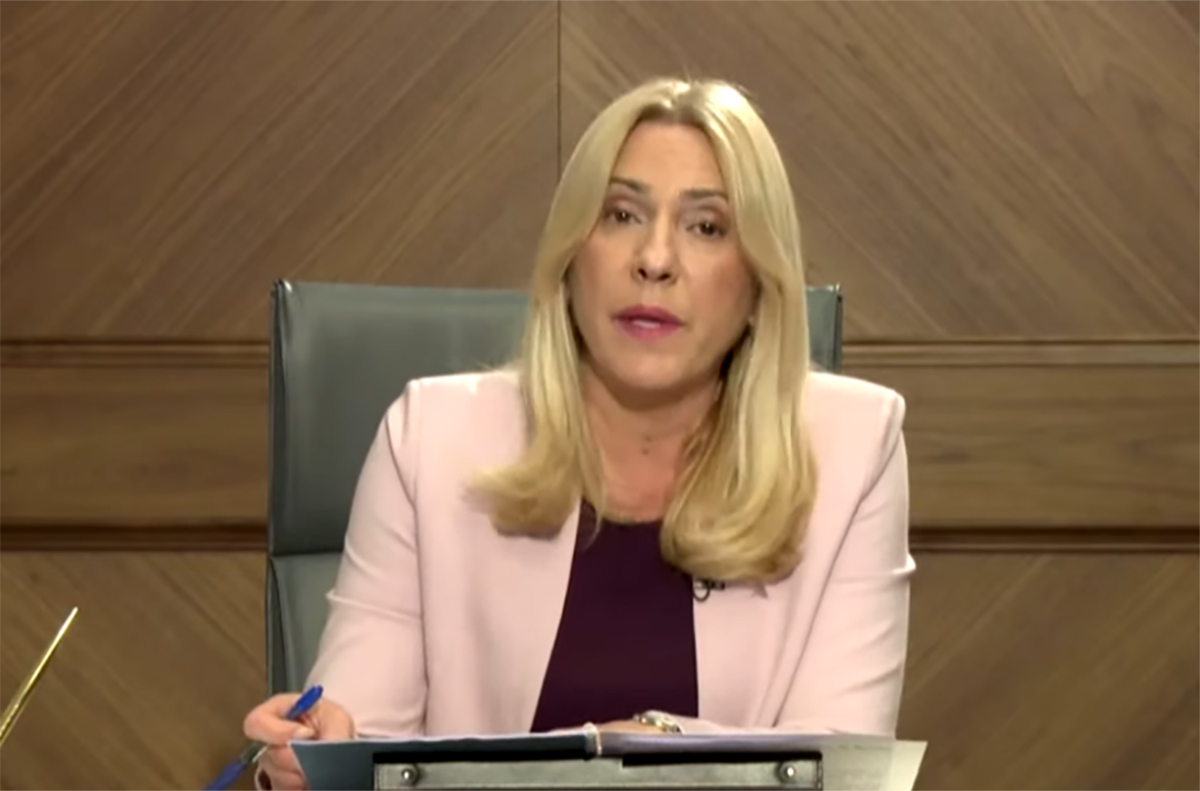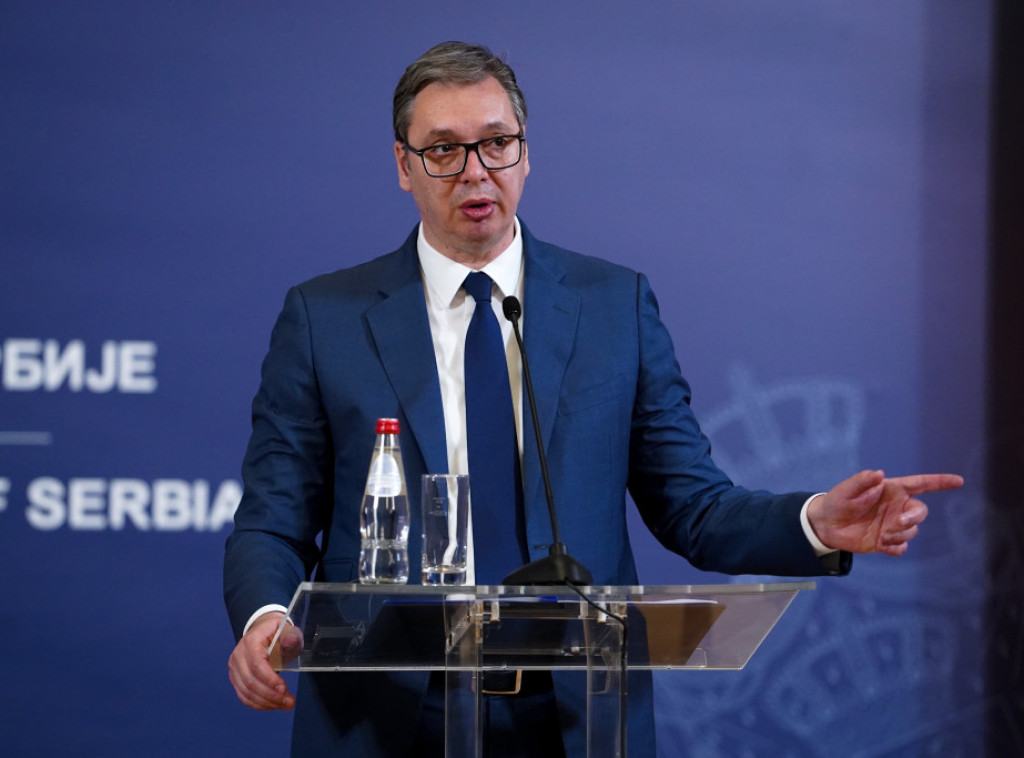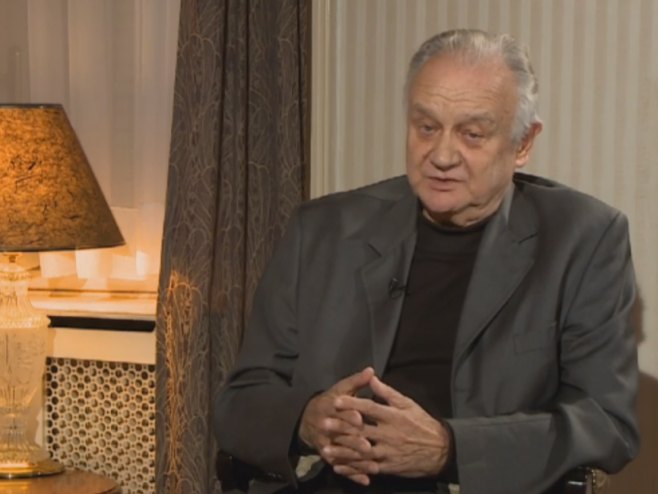The Republika Srpska does not violate the Dayton Agreement nor international law. On the contrary, it advocates for strict adherence to the Constitution of Bosnia and Herzegovina, as part of the agreement, which leaves the majority of competencies in the hands of the two entities and provides each of the three constitutive peoples with mechanisms to protect their rights. Moreover, respecting international law means that high representatives must be appointed in accordance with the procedures established by Annex 10 of the Dayton Agreement and act within the prescribed mandate, stressed the Serb member of the Presidency of Bosnia and Herzegovina, Željka Cvijanović, who addressed the Security Council session via video link.
She emphasized that Republika Srpska advocates for the respect of our constitution and the procedures it prescribes.
“It opposes the misuse and circumvention of our institutions and constitutional provisions, such as, for example, the current resolution on the Srebrenica Remembrance Day. The preparation of this resolution for voting at the UN General Assembly is being conducted without any prior consultations and approval by the relevant and competent institutions of Bosnia and Herzegovina,” emphasized the Serb member of the Presidency of Bosnia and Herzegovina.
Cvijanović thanked for the opportunity to address the Security Council and share her views and perception of the situation in the country.
“The Presidency of Bosnia and Herzegovina, acting as a collective tripartite head of state, includes me as elected from Republika Srpska, one of the two entities that constitute Bosnia and Herzegovina,” she said.
She reminded that the other two members of the Presidency of Bosnia and Herzegovina are elected from the other entity, the Federation of BiH.
“This clearly shows that Bosnia and Herzegovina is not a single electoral unit when it comes to the election of joint institutions at the level of BiH. It also indicates that the Constitution of BiH, or Annex 4 of the Dayton Agreement, is carefully conceived to establish a system with two entities with a high degree of autonomy and three constitutive peoples, as well as with significant power-sharing mechanisms. These mechanisms guarantee all constitutive peoples protection against majoritarianism and equal participation in the governance of the country,” she noted.
And it is precisely this principle of equality, she adds, that is the main guardian of peace and stability in our country, not repression, tutelage, or international interventions, as often wrongly and unreasonably claimed by those who wish to justify such international interventionism and their colonial behavior.
“Here, I would like to highlight several critical issues that burden Bosnia and Herzegovina and hinder its progress. But, allow me to first say a few words about Republika Srpska and the positions of its institutions, which many often misrepresent in a rather tendentious way, both inside and outside Bosnia and Herzegovina,” she stated.
She stressed that Republika Srpska does not violate the rule of law.
“On the contrary, it advocates for the respect of our constitution and the procedures it prescribes. It opposes the misuse and circumvention of our institutions and constitutional provisions, such as, for example, the current resolution on the Srebrenica Remembrance Day. The preparation of this resolution for voting at the UN General Assembly is being conducted without any prior consultations and approval by the relevant and competent institutions of Bosnia and Herzegovina,” stated the Serb member of the Presidency of Bosnia and Herzegovina.
She emphasized that Republika Srpska does not undermine democracy.
“On the contrary, Republika Srpska is firm in its stance that only our democratically elected institutions have the right to make laws and that laws cannot and should not be imposed by unelected foreign nationals. Republika Srpska is committed to peace and stability and wishes to see BiH as a truly democratic and sovereign state capable of promoting internal dialogue in seeking balanced, constitutionally founded solutions that would suit everyone in BiH. Unfortunately, the challenges we have faced in recent years threaten not only the Constitution of BiH but also the security and stability of the country, and even the entire Western Balkans region. These threats are directly contributed to by those who persistently keep Bosnia and Herzegovina in the status of a quasi-protectorate, where the rule of law and democratic governance are bypassed, and autocratic/colonialist foreign interventions prevent reconciliation among our peoples,” she noted.
She said that currently, there are several major challenges to peace and stability in BiH, most of which are used in various manipulations and initiated by foreign and domestic political actors who seek to “rewrite” the Dayton Agreement, the Constitution of BiH, the laws of BiH, and international law.
“These threats to peace and stability can be divided into the following categories:
- interference in internal political and democratic processes,
- resorting to threats of force/violence,
- disrespect for the rule of law and violation of international law,
- interference in elections and disenfranchisement of voters.
Cvijanović detailed these challenges and threats.
“At the center of every dispute within BiH is the fundamentally contentious issue concerning the nature of the joint state. According to Dayton, as well as historically, BiH could only function through consensus decision-making, where each people would be protected from being outvoted by representatives of the other two peoples. Unfortunately, while the Serb and Croat peoples and their elected representatives consistently fight for the respect of the Dayton Agreement as it was written and signed, Bosniaks and their elected representatives advocate for a unitary and centralized state,” she highlighted.
She noted that the Bosniak political goal of centralizing BiH is often supported and propagated by foreign actors in BiH.
“Through unlawful decisions and coercion, to which successive high representatives have resorted for years, the constitutional structure of BiH established by the Dayton Agreement has been significantly altered. Indeed, high representatives, by their actions, have interfered in the internal democratic processes and agreement of the elected and legitimate representatives of the constitutive peoples and entities of BiH. High representatives, mostly siding with Bosniak aspirations for a centralized state, have violated the essential provisions of the Dayton Agreement that provide for the protection and equality of the constitutive peoples, thereby endangering peace and security in BiH,” she believes.
Every sovereign state, adds Cvijanović, and all democratically elected officials enjoy protection from foreign interference in internal affairs, according to the United Nations Charter and numerous international treaties and regulations.
“Unfortunately, certain foreign diplomats in BiH and Christian Schmidt, who poses as some hybrid ‘colonial governor’ and typical despot, continuously and with increasingly destructive tendencies, interfere in the internal democratic processes and decision-making processes within BiH. This interference has undermined the political consensus at the joint level of BiH, which directed and encouraged BiH’s progress towards EU membership. Consensus on BiH’s EU membership is the only important issue that allows difficult compromises and agreement of all political forces in BiH and elected leaders. As such, it is essential for maintaining peace and stability within our joint state,” Cvijanović conveyed.
She states that other foreign actors, such as the Peace Implementation Council, which is not part of international law as it is not provided for by the Dayton Agreement, and individual diplomats accredited in BiH, have similarly interfered in internal matters and thus aided the OHR in their unlawful actions, and now Schmidt as well.
“Even the resolution on Srebrenica Remembrance Day proposed to the UN General Assembly is a blatant example of how foreign interference and disrespect for the constitution of BiH undermine peace and stability. The draft resolution, authored by certain countries and BiH Ambassador to the UN Zlatko Lagumdžija, reflects complete disregard for the Constitution of BiH and the Presidency of BiH, which is exclusively responsible for formulating BiH’s foreign policy. The Presidency has neither discussed nor adopted this draft resolution; moreover, there is no consensus among our peoples or at any level of government on the text of the resolution, which has been deliberately withheld and hidden from the public. Most of your countries know that this activity is conducted contrary to the Dayton Agreement, but you have simply decided to ignore that fact,” Cvijanović believes.
She points out that some UN members consider this resolution benign and that it represents an act of human compassion.
“However, it is clear that the intention behind it is anything but benign. Professor Francis Boyle, legal advisor to Bosniak political leaders, last Friday, April 26, in an interview with a Sarajevo TV network, stated that after the adoption of the resolution in the UN General Assembly, all so-called ‘pro-Bosnian forces’ must unite to use it to abolish Republika Srpska. This dangerous statement, unfortunately, reflects the prevailing intention of many Bosniak political leaders and clearly shows that the proposed resolution is destabilizing for peace and stability in BiH,” Cvijanović believes.
It is no surprise, she says, that this type of foreign interference undermines negotiations and compromise within BiH, as it always favors one side – the Bosniak side.
“While officials of Republika Srpska talk about the need to preserve peace and stability and resolve all open political issues in democratic institutions, certain threats and militaristic statements by Western ambassadors in Sarajevo seek to instill fear in Serbs, while simultaneously giving hope to some radical forces in the Bosniak political top that NATO will ‘solve’ the ‘problematic’ Republika Srpska by abolishing it. At the same time, Bosniak officials, like Minister of Defense of BiH Zukan Helez and Minister of Security of FBiH Ramo Isak, openly threaten violence and war. Among the many inflammatory statements by Minister Helez, two are the most
dangerous: that he is creating ‘reserve’ military forces in BiH, and the call to introduce ‘military training’ in schools in BiH. Minister Isak, on the other hand, stated that he would ‘lead 10 corps’ when Republika Srpska is being abolished,” Cvijanović believes.
She emphasizes that such threats and calls for violence are rarely condemned by Schmidt and foreign ambassadors.
“It should also be noted that the current threat from radical Islamic terrorist cells represents a danger not only to peace in BiH and the Western Balkans but also throughout Europe. Just two weeks ago, police forces in Zenica arrested a person suspected of belonging to a radical Islamist group in FBiH. Local media in BiH recently reported that Minister Helez approved the use of Armed Forces of BiH training grounds in Mostar by foreign nationals and some locals associated with the radical Wahhabi movement,” Cvijanović stated.
She pointed out that this is particularly dangerous and irresponsible because “for many years, BiH has been labeled in foreign media and international security reports as the most dangerous source of jihadist terrorism in Europe.”
“Concerns about terrorist threats coming from BiH have been noted by many Western governments and other sources. For example, the U.S. State Department last year wrote: ‘Terrorist groups continue to plan possible attacks in BiH.’ French President Emmanuel Macron, in 2021, speaking about the presence of jihadists in BiH, called the country a ‘ticking time bomb.’ According to data published by the Wilson Center in Washington, BiH had the highest number of citizens who went to wage jihad in Syria and Iraq among European countries. As we all know, the rule of law is one of the basic conditions for peace and democratic governance. Unfortunately, it is persistently violated and ignored in BiH, especially by Schmidt and his helpers and accomplices from certain foreign embassies,” Cvijanović noted.
She pointed out that the rule of law is at the center of the process of European integration, and EU representatives and EU member states constantly emphasize the importance of respecting it, but only mildly reprimand Schmidt for his constant violation of the same rule of law.
“Schmidt and his supporters claim that he has executive, judicial, and legislative power and that he is not accountable to any government or court in BiH. In other words, they consider that he has absolute power and no accountability. It is unclear how this can fit into any normal concept of the rule of law. In a further collapse of the rule of law, Schmidt amended the Criminal Code of BiH to use it as a means of punishing anyone who does not respect his decisions. Currently, a proceeding is underway against the democratically elected president of Republika Srpska, as well as a public official, because, fulfilling their constitutional and legal obligations, they did not respect Schmidt’s orders,” said Cvijanović.
She says that the rule of law is also under attack from threats and international sanctions by the governments of the United States and Great Britain.
“Threats and sanctions are used to intimidate elected and other officials, their families, private businesses, and even the media. Any leader who refuses to comply with Schmidt or who refuses to accept unlawful subversions of the Dayton Agreement is openly and relentlessly attacked and becomes a target of sanctions. These sanctions are imposed without due process, i.e., without any formal indictment, even without appearing before a judge or court, even for a minute. Banks are forced to close accounts and deny services to these individuals, who have not been officially accused of any criminal offense. This behavior is often seen in the realm of organized crime and in no way resembles the behavior of democratic states that support the international legal order or the rule of law,” Cvijanović stated.
This blatantly unlawful behavior, adds Cvijanović, and the complete disregard for the rule of law by Schmidt, his accomplices in BiH, and helpers from various governments, undermines the entire constitutional order in BiH, weakens government institutions, and disregards the will of the citizens of BiH.
“Such behavior, undoubtedly, poses a threat to peace and stability in BiH. In addition to the aforementioned violations of the Dayton Agreement, international law, the Constitution of BiH, and the rule of law, efforts continue to deprive voters in BiH of their rights. Schmidt’s latest decision imposed amendments to the Electoral Law in BiH, which is a clear attempt to intervene in elections and manipulate the results of the upcoming local elections. Although announced as a technical amendment to the Electoral Law, which supposedly ensures greater electoral integrity, this decision is, in fact, political and calls into question the integrity of the entire electoral process, while leaving real control and influence to an unelected foreigner,” says Cvijanović.
She states that Schmidt has once again violated the Dayton Agreement.
“He transferred powers from the entity governments to a centralized body at the state level, the Central Election Commission, which is devoid of legitimacy and legality. In addition, Schmidt violates labor legislation: he extended the term of members of the Central Election Commission beyond the legal and retirement age limit. The Central Election Commission can now bypass the court since Schmidt has given it the right to directly penalize any violation of his electoral law that the Commission sees as such. With the same dictate, citizens of BiH are denied their constitutional and legal rights to run for elected office without due process or any legal remedy,” said Cvijanović.
She reminded that when the National Assembly and elected representatives of Republika Srpska took legal measures to protect the Dayton Agreement and the integrity of local elections in Republika Srpska, Schmidt and his accomplices openly threatened elected officials with forced removal and various forms of punishment.
“Essentially, by depriving elected officials and government institutions of constitutional powers and responsibilities, voters in BiH are deprived of their rights. Every time Christian Schmidt imposes a decision, disregarding the democratic constitutional order of the country and the provisions of the Dayton Agreement, it destabilizes BiH. Schmidt’s repressive decisions, reckless edicts, threats, and other interferences have caused crisis after crisis in BiH since his arrival. The actions and rhetoric of officials of Republika Srpska, which have been condemned by certain foreign states, were predictably provoked by Schmidt’s outrageous, unlawful actions,” she emphasized.
The fact is, she adds, that every time an interloper like Schmidt – or those who support him – engages in flagrant bully tactics and unlawful actions and attempts to weaken, sanction, or even imprison our democratically elected leaders, it has perfectly predictable consequences – it motivates the citizens of Republika Srpska and their elected officials to oppose such misdeeds.
“It is clear that the continuous violation of the Dayton Agreement by Schmidt and his international and domestic accomplices represents a threat to peace and directly undermines stability in BiH. This violation must be condemned in every way possible and ended as soon as possible. Thank you for your attention, and I ask that we all continue to support peace and stability in BiH even more strongly,” Cvijanović stated.
Source: RTRS




.jpg?v1692000538)



